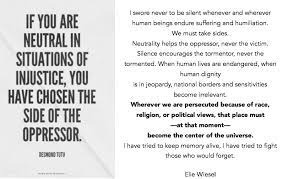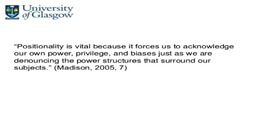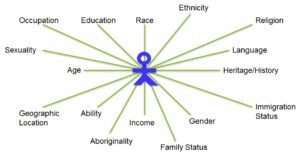#it's about redefining ideas imposed on you both from outside and from within etc etc
Explore tagged Tumblr posts
Text
GIRL HELP the siskoshir thing I just experimentally started writing has now crossed 30,000 words... wHAT
#like!! I'm not even necessarily *obsessed* with this pairing#(much love to all my mutuals who are <3)#but ben and julian adopting that baby jem'hadar from 'the abandoned' and raising it together is something that can be so personal??#it's about FAMILY#it's about HEALING#it's about redefining ideas imposed on you both from outside and from within etc etc#...anyway I'm fine :')#my fics
12 notes
·
View notes
Text
My positionality: Why should my child unlearn the same things I did?
Is it ignorant or fear of change that every generation has to fall trap into the same oppressing system? from our great grandmothers, who we identify as heroes of the society, our mothers, the cornerstones? Are we really going to be that generation that carries the silence of oppression passing it on to our children? Fortunately, I became a mum at what I call an ‘awakening age’ and aspired to be a different mum since then. I’m not saying other mums out there are not enough or that my mum is bad, but I have seen so many unlearned practices from her life.
Growing up in a ‘broken family’ without a father and having uncles play the father figure role had me yearning to covet the rights women have neglected for years and derange the patriarchal system. I mean, I identified my mother as mum and dad, although I hate calling her dad. Yes, she took on both roles, trying so much to not have me feel the gap of his absence. Trust me, I don’t hate my dad and never did, even when he was still alive. I hate the choices he made of neglecting me, not that I want to pin his actions with unjust things happening in my life, but somehow his behavioural choices were distorted. Growing up with my mum had me realize that I had to do better than the woman dad left in my mum who could not fully be my role model. I identify myself not as a strong woman but as resilient. One who has been down several times and still woke up.
I’ve seen how my male cousins were treated better than anyone else, how they would be part of family gatherings and have a say while we were only involved for refreshments. I don’t hate my upbringing, maybe had I had a different one, I wouldn’t have learnt. But who am I kidding? This patriarchal system doesn’t only affect us within our families; it’s a societal norm. Crazy right? But we can’t shy from the reality that this social system is used by males to control females (Yifei, 2011). I grew up angry at how I had no voice, how everything was dictated to me, how the behavioural choices imposed on me by society were to their benefits and not what I want but, in the name of teaching and grooming me to become a submissive wife.
It’s sad how I have witnessed this in my community, where these ‘happily’ married women were victims of gender-based violence and had no one to run to. It's frustrating how some of these women in marriages taught submission raised children who were victims of domestic violence and how everybody else knew, but none took a step to intervene. This has led me to not give childish advice to my clients in terms of marriage and relationships. It has redefined how I relate to people regarding their religion, gender identity, spirituality, etc.
Funny how as we grow, we’re encouraged to not think of anything else besides marriage. Don’t get me wrong, I respect such a communion, especially when it's consensual. But what angers me is how we cannot choose who we want to marry, how, and when. We actually not even asked if we want to get married. But does it matter? We’re merely a land that should be fertile to these undeserving males we call men in our societies. What kind of men would do such to a woman? What kind of mothers would allow this to their daughters?
The yoke we carry of thinking about your family names whenever we have to do something, I’m not saying drag your family on the mud. But why must it always be women who should take that responsibility? When I fell pregnant, I was such an outcast. Mind you this is my body. Funny how I had no feelings, their main concern was how what I’ve ‘done’ ruined the family’s reputation. I felt like such a possession. Or am I? you know when everyone can say something about you?
I had gone against religious ethics, and dogma. I had become such a sinner that deserved to be in hell, well no one saw me as a woman, not even as a person. I remember how I was oppressed for actions I could not undo. For a child I could not abort. For a child I loved at the very moment I realized I have conceived.

Google (2021) this image shows how accepting to say nothing is actually a choice favoring the opposition.
Hence, I learned how much I could not have my child go through the same treatment. I fought to break the silence and to take a stand for myself and wellbeing. I had to find my identity, in a place that seemed like a war zone I was tired of being deprived of my thinking, and entitlement to my behavioural choices and decisions.
Social constructs that made other women so proud of being numb, satisfied with mediocre, revoked feelings of strength and preparedness for war in me. I had to fight for the many women coming after me, before me, my mother, my daughter but mostly myself. I had to fight and still fighting the logic of being okay with not questioning, being okay with acceptance in the name of ethnicity, language, geographical location, family status, religion, race, gender and even culture. I’m still fighting the idea of how in a romantic heterosexual relationship the man has to be taller than the girl, darker than the female, be more educated and earn more money than the female. I’m still fighting the “okayness” with polygamy but stereotypes with polyandry. The okayness with men having many sexual partners and the labelling over women who do the same. The okayness of men using the services of sex workers and how sex workers are immoral. I’m fighting the okayness of a brother sleeping for 10+ hours and sisters waking up at dawn, preparing food for the entire family menders.
Positionality is a term used to explain how a person sees life, sees the world and position themselves in a situation, political and or social context (Darwin Holmes, 2020). Although ones understanding of life is everchanging, it is also important to recognize and understand how the change affects people around us.

Google (2021) the emphasis is on acknowledging that as people we learn and change, hence ones positionality is dynamic.
My positionality has been impacted upon by personal experiences with regards to gender, from the idea of what gender is, and how as soon as a child is born there is confinement of who and how they should behave and think. Such experiences have taught me to see a person as a person without labels, so what if treat a transgender? So, what if I treat a sex worker? Why should my ideas control my therapy? Its of very importance that I look at the person holistically and consider their positionality’s in everything. At the end of the day, I should be concerned with how the client’s occupations have been affected and what can be done to assist not analysing the persons preferences, gender identity, and behaviour. Assuming a person’s positionality is so important because it allows me as a therapist to get the clients holistic overview of self and life.

Google (2021) these are the factors affecting ones positionality.
Hence at Kenville community, we look beyond the client’s family status and treat everyone as equals. Be it a doctor, one of our own OTs and a child from a disadvantaged family. We understand that quality of life is impacted by health, environment, race, gender, and social status. We have also looked at programmes we can use to educate our community through the maternal health programme. Which has included individuals who are from South Africa with an attempt to alert our communities that outside of skin colour lives people. Its actually not important which gender you assign with, which race you identify yourself as. We are people. We are women.
I have this great urge to have my daughter, sisters not having to unlearn social injustices. how about you?
Reference
References
1. Darwin Holmes, A. (2020). Researcher Positionality - A Consideration of Its Influence and Place in Qualitative Research - A New Researcher Guide. Shanlax International Journal Of Education, 8(4), 1-10. https://doi.org/10.34293/education.v8i4.3232
2. https://www.dictionary.com/e/wp-content/uploads/2018/08/positionality-300x156.jpg
3. https://www.google.com/imgres?imgurl=https%3A%2F%2Fmiro.medium.com%2Fmax%2F794%2F1*prT891D9WB1Nm3xyG3r7OA.png&imgrefurl=https%3A%2F%2Fmedium.com%2Fscholar-activism%2Fblog-8-when-are-we-positioned-out-of-bounds-3df6c7ee8dad&tbnid=_GtBNmlokchE_M&vet=12ahUKEwimt7yMrNvvAhUU4RoKHQhbAxYQMygFegQIARAj..i&docid=b-ownNp2UorWiM&w=794&h=505&q=positionality%20quotes&ved=2ahUKEwimt7yMrNvvAhUU4RoKHQhbAxYQMygFegQIARAj
4. https://www.google.com/url?sa=i&url=https%3A%2F%2Fwww.slideshare.net%2Fmattmaycock%2Fethnography-group-15th-july-2015&psig=AOvVaw3LL8lzR2rGXMI_zXSF2ZaK&ust=1617476909120000&source=images&cd=vfe&ved=0CA0QjhxqFwoTCKCq55eh4O8CFQAAAAAdAAAAABAK
5. Yifei, S. (2011). China in the "Post-Patriarchal Era". Chinese Sociology & Anthropology, 43(4), 5-23. https://doi.org/10.2753/csa0009-4625430401
0 notes
Photo

New Post has been published on https://toldnews.com/travel/is-a-vacation-for-a-caregiver-even-possible-yes-heres-your-new-way-to-travel/
Is a vacation for a caregiver even possible? Yes -- here's your new way to 'travel'

(CNN) — Three hospitals. Four rehab centers and nursing homes. And 24/7 private home care in between. That was my widowed mother’s life — and by extension my life — in 2018 and spilling over into this year.
When a family member has an extended illness, there really aren’t enough hours in the day for the necessities: putting in some hours on your job (if you’re lucky enough to keep it like I’ve been), making sure your loved one is cared for adequately, keeping the bills paid, etc.
And time off for a vacation? That’s not conceivable when a full night’s sleep is a treasured luxury and your expenses outpace your income. Or is it?
‘Take care of yourself’

The oaks on South Boundary Avenue in Aiken, South Carolina, provide a natural archway and make even a drive to do errands a pleasant experience.
Forrest Brown/CNN
You hear it a lot when your life becomes engulfed in a loved one’s long-term medical crisis: “Be sure to take care of yourself.”
It’s well-meaning, certainly true, easy to say — and hard to do.
Vacations are one way we take care of ourselves. They are a chance to recharge and refresh. But when basics such as nutritious eating and adequate rest can be hard to come by because of a time or money squeeze, a traditional vacation is completely out of reach.
Every person’s case will vary, but for me, a classic week at the beach or two weeks in Europe is simply not doable.
The situation’s been hard. I’m tired. And I’m envious at times.
I look at my friends’ Facebook trips and think, “That used to be me.” My colleagues at CNN Travel report from far-flung places such as Azerbaijan or Japan.
My travels? I drive between Atlanta, where I work, and my home state of South Carolina where my mother is now in a skilled nursing facility and stable for the moment. It’s about 200 miles each way, mostly down the same ol’ Interstate 20. Not my idea of a good-times road trip.
Despite these limitations, I have managed to find a way to “travel.” This method can work for others who find themselves unable to take a week at the beach or head overseas for whatever reasons that severely limit you in time or money.
The method is simple — and free! You just have to change the way you think.
Redefining ‘travel’ and ‘vacation’

I had a memorable stroll along the Augusta Canal headgates at Savannah Rapids Park in the spring of 2018.
Forrest Brown/CNN
Because of circumstances I couldn’t change, I had to come up with new definitions and time frames for the words “travel” and “vacation.” What used to be a week off is now a day off. What used to be a day off is now an hour off.
“Vacation” might mean one glorious day free of both caregiving and work duties. “Travel” might mean a five-mile, 30-minute detour that has nothing to do with my appointed tasks.
And what I’ve discovered is you can create some precious moments in these little dollops of time and limited place — moments just as meaningful as you’ll have on a big overseas trip.
That minor epiphany came to me one sunny, spring day as I walked along the banks of the Augusta Canal and Savannah River outside of Augusta, Georgia. I had a family member who could sit with my mother all afternoon. My plan was to nap for 90 minutes and then work. But the sun, the sky, the gentle breeze — they were calling me and I couldn’t resist. And I’m so glad I didn’t.
My one-hour stroll along the canal and river felt as magical and memorable as rambles I’ve had along the Seine in Paris, the Thames in London and the St. Lawrence in Quebec City. And it was five miles from my motel and in a place where I once lived. That’s when the light bulb started illuminating: This is how I can now “travel.”
Find the beauty in your own backyard

A nighttime view of Atlanta, looking toward Midtown, from the Westin hotel. Turn where you live into a “vacation” spot.
Forrest Brown/CNN
I have self-imposed limits on how far I’m willing to be from my mother in the case of an emergency — roughly 200 miles. That puts points north and west out of Atlanta out of range for now. So where can I go? I’m still left with pretty much all of South Carolina, a decent chunk of Georgia and bits of North Carolina.
I’m fortunate. There’s a lot to see within this part of the Southeast that’s now my range. And it puts tourism heavyweights such as Savannah, Georgia, and Charleston, South Carolina, within striking distance, not to mention lesser-known places such as Congaree National Park, mountain towns and coastal villages.
A situation like this makes you find the beauty of your own backyard, so to speak. You gain a new appreciation for what’s always been under your nose when most of the world is suddenly cut off to you.
Some ideas on making this work for you

Take advantage of what’s nearby. Lake Strom Thurmond straddles the South Carolina-Georgia line. This shot is from the visitors center on the South Carolina side of the lake.
Forrest Brown/CNN
You may not be caring for an ailing family member. Perhaps you’ve lost your job and don’t have money to spend on flights and room rentals. Perhaps you’re working two or three jobs and don’t have time to go far.
Despite your personal time, money or geographical limits, here are some other ideas on making the most of the situation and still getting in some quality “travel” time until things change:
— Parks, parks and more parks: Green spaces are nothing less than a salvation, and many are free. It can be a small space in a town or a big state park, which may have a small parking or entry fee. It’s worth it. A chance to stretch your legs, breathe fresh air and soak in some nature is invaluable.
— Community festivals: A lot of these are also free (or cheap), and it’s a great chance to get around some happy people.
— Play tourist in your own city: Pretend you have friends coming in from out of town. Where would you take them? That might be somewhere you’ll want to go for yourself. I’m lucky — Atlanta is geared toward visitors and filled with places I haven’t seen yet even after more than 10 years of living here. But even a smaller city or a rural area should have some diversions you haven’t gotten around to seeing.
— Armchair travel: This one might depend on your mood. But if you think it will lift your spirits to read about places far away, escape that way. For instance, CNN Travel has a wonderful destinations page of more than 50 places — from Abu Dhabi to Vietnam. Click around and see what interests you. It’s a great way to take a journey in your mind when you can’t do it with your body.
— Take photos: These days, most of us have a phone equipped with a camera. Use it! In preparing the photo gallery that’s atop this story, I came to realize my life has been more than hospital, rehab and lonely motel rooms in the past year and a half. Perusing your “vacations” is another way to take a mental break, plus you can share them with your loved one who is stuck inside all the time.
— Use your money and personal connections: If you’re fortunate enough to have deep savings, by all means use that money. Hire someone to replace you some of the time if your particular circumstances allow.
#Caregiver&x27;s vacation: How to redefine &x27;travel&x27; for yourself - CNN#radio 2 travel news presenters#travel#travel e-newsletter templates#travel news 2017#travel news new york#travel news west yorkshire#travelgirl
0 notes